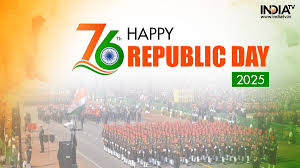"Patriotism" in Indian
English writing often refers to a deep love and devotion for one's
country, India, often expressed through pride in its rich cultural heritage,
historical struggles for independence, and a commitment to actively contribute
to its progress, frequently highlighting the idea of "Bharat Mata"
(Mother India) as a powerful symbol of national identity; it can manifest
in writing through themes of sacrifice, unity in diversity, and the
responsibility to work towards a better nation for all citizens.
Role of literature in the freedom
struggle
In this way, Literature helped unite
the Indian people against the British and inspired them to sacrifice for their
country's freedom. Literature highlighted the plight of Indians under British
rule.
Emphasis on freedom struggle:
Indian writers often depict the
sacrifices made by freedom fighters during the colonial era, showcasing their
unwavering patriotism in the face of oppression.
Celebration of diversity:
Indian literature frequently highlights
the beauty and strength found in the country's diverse cultures, languages, and
religions, emphasizing the concept of "unity in diversity" as a core
aspect of patriotism.
Social responsibility:
Patriotism is not just about
national pride but also about actively contributing to social betterment by
addressing poverty, inequality, and environmental concerns.
Language and imagery:
Writers often use evocative
language and imagery related to Indian landscapes, festivals, and traditional
values to convey a deep emotional connection to the nation.
Patriotism in Indian English
literature is a theme that inspired people to fight for their country's
independence from British rule. Writers used literature to express their
resentment towards British rule and to encourage people to sacrifice for their
country's freedom.
Examples of patriotic works:
Henry Derozio's poems: Derozio's
poems, such as To India Native Land, The Harp of India, and The Golden Vase,
were patriotic and inspired young Indians.
Bharatendu Harishchandra's Bharat
Durdasha: This work exposed British exploitation and inspired a sense of
nationalism.
Bankim Chandra Chatterjee's Ananda
Math: This work inspired a sense of nationalism.
Dinabandhu Mitra and Allama
Muhammad Iqbal's Nil Darpan and Saare Jahan Se Achha Hindustan Hamara: These
works inspired a sense of nationalism.
Rabindranath Tagore's poem, “Where
the Mind is without Fear” inspired people to liberate India from colonialism.
In this way, patriotic poetry,
novels, dramas, and short stories were written that depicted the
oppression and cruelty of the British rulers against Indians and acted as great
weapons against British rule in India.



No comments:
Post a Comment